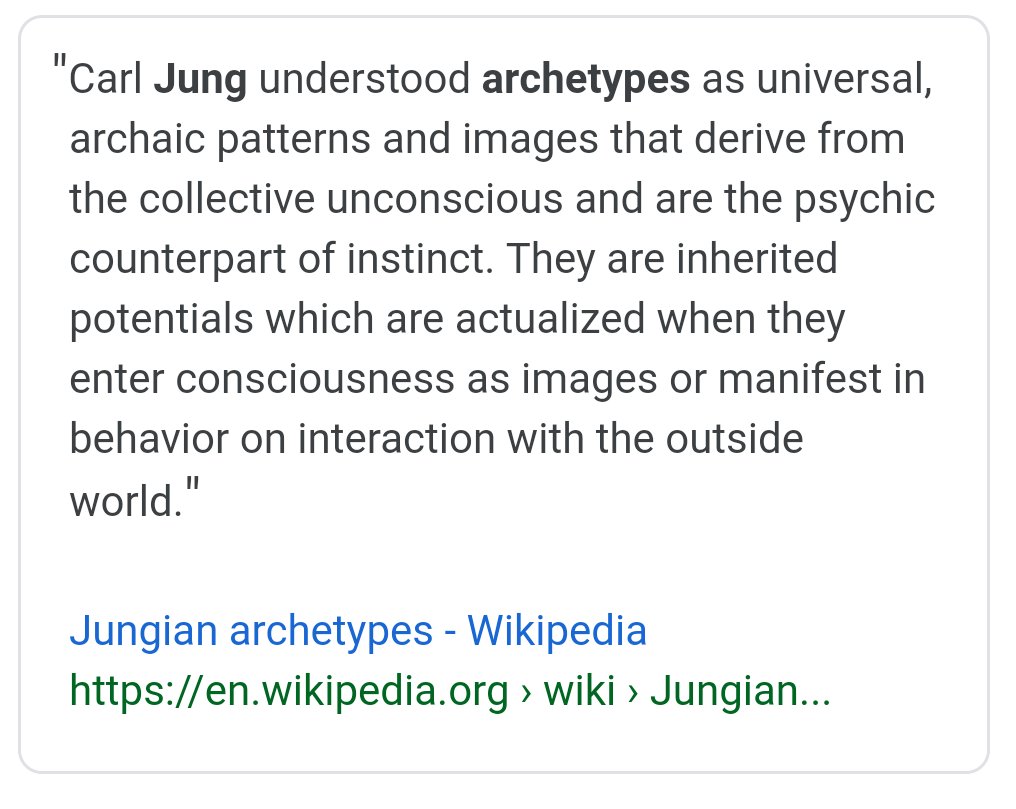-
Welcome to the discussion forums. To get posting, register an account.
You are using an out of date browser. It may not display this or other websites correctly.
You should upgrade or use an alternative browser.
You should upgrade or use an alternative browser.
The Psychology/Body Language/Personality Thread
- Thread starter Columbo
- Start date
If you are referring to Myers Briggs, it means:My guess is that I am an ISTJ... Whatever that means
The ISTJ personality type is thought to be the most abundant, making up around 13% of the population. Their defining characteristics of integrity, practical logic and tireless dedication to duty make ISTJs a vital core to many families, as well as organizations that uphold traditions, rules and standards, such as law offices, regulatory bodies and military. People with the ISTJ personality type enjoy taking responsibility for their actions, and take pride in the work they do – when working towards a goal, ISTJs hold back none of their time and energy completing each relevant task with accuracy and patience.
ISTJs don’t make many assumptions, preferring instead to analyze their surroundings, check their facts and arrive at practical courses of action. ISTJ personalities are no-nonsense, and when they’ve made a decision, they will relay the facts necessary to achieve their goal, expecting others to grasp the situation immediately and take action. ISTJs have little tolerance for indecisiveness, but lose patience even more quickly if their chosen course is challenged with impractical theories, especially if they ignore key details – if challenges becomes time-consuming debates, ISTJs can become noticeably angry as deadlines tick nearer.
When ISTJs say they are going to get something done, they do it, meeting their obligations no matter the personal cost, and they are baffled by people who don’t hold their own word in the same respect. Combining laziness and dishonesty is the quickest way to get on ISTJs’ bad side. Consequently, people with the ISTJ personality type often prefer to work alone, or at least have their authority clearly established by hierarchy, where they can set and achieve their goals without debate or worry over other’s reliability.
ISTJs have sharp, fact-based minds, and prefer autonomy and self-sufficiency to reliance on someone or something. Dependency on others is often seen by ISTJs as a weakness, and their passion for duty, dependability and impeccable personal integrity forbid falling into such a trap.
This sense of personal integrity is core to ISTJs, and goes beyond their own minds – ISTJ personalities adhere to established rules and guidelines regardless of cost, reporting their own mistakes and telling the truth even when the consequences for doing so could be disastrous. To ISTJs, honesty is far more important than emotional considerations, and their blunt approach leaves others with the false impression that ISTJs are cold, or even robotic. People with this type may struggle to express emotion or affection outwardly, but the suggestion that they don’t feel, or worse have no personality at all, is deeply hurtful.
ISTJs’ dedication is an excellent quality, allowing them to accomplish much, but it is also a core weakness that less scrupulous individuals take advantage of. ISTJs seek stability and security, considering it their duty to maintain a smooth operation, and they may find that their coworkers and significant others shift their responsibilities onto them, knowing that they will always take up the slack. ISTJs tend to keep their opinions to themselves and let the facts do the talking, but it can be a long time before observable evidence tells the whole story.
ISTJs need to remember to take care of themselves – their stubborn dedication to stability and efficiency can compromise those goals in the long term as others lean ever-harder on them, creating an emotional strain that can go unexpressed for years, only finally coming out after it’s too late to fix. If they can find coworkers and spouses who genuinely appreciate and complement their qualities, who enjoy the brightness, clarity and dependability that they offer, ISTJs will find that their stabilizing role is a tremendously satisfying one, knowing that they are part of a system that works.
Does that fit @Affable ?
If you are referring to Myers Briggs, it means:
The ISTJ personality type is thought to be the most abundant, making up around 13% of the population. Their defining characteristics of integrity, practical logic and tireless dedication to duty make ISTJs a vital core to many families, as well as organizations that uphold traditions, rules and standards, such as law offices, regulatory bodies and military. People with the ISTJ personality type enjoy taking responsibility for their actions, and take pride in the work they do – when working towards a goal, ISTJs hold back none of their time and energy completing each relevant task with accuracy and patience.
ISTJs don’t make many assumptions, preferring instead to analyze their surroundings, check their facts and arrive at practical courses of action. ISTJ personalities are no-nonsense, and when they’ve made a decision, they will relay the facts necessary to achieve their goal, expecting others to grasp the situation immediately and take action. ISTJs have little tolerance for indecisiveness, but lose patience even more quickly if their chosen course is challenged with impractical theories, especially if they ignore key details – if challenges becomes time-consuming debates, ISTJs can become noticeably angry as deadlines tick nearer.
When ISTJs say they are going to get something done, they do it, meeting their obligations no matter the personal cost, and they are baffled by people who don’t hold their own word in the same respect. Combining laziness and dishonesty is the quickest way to get on ISTJs’ bad side. Consequently, people with the ISTJ personality type often prefer to work alone, or at least have their authority clearly established by hierarchy, where they can set and achieve their goals without debate or worry over other’s reliability.
ISTJs have sharp, fact-based minds, and prefer autonomy and self-sufficiency to reliance on someone or something. Dependency on others is often seen by ISTJs as a weakness, and their passion for duty, dependability and impeccable personal integrity forbid falling into such a trap.
This sense of personal integrity is core to ISTJs, and goes beyond their own minds – ISTJ personalities adhere to established rules and guidelines regardless of cost, reporting their own mistakes and telling the truth even when the consequences for doing so could be disastrous. To ISTJs, honesty is far more important than emotional considerations, and their blunt approach leaves others with the false impression that ISTJs are cold, or even robotic. People with this type may struggle to express emotion or affection outwardly, but the suggestion that they don’t feel, or worse have no personality at all, is deeply hurtful.
ISTJs’ dedication is an excellent quality, allowing them to accomplish much, but it is also a core weakness that less scrupulous individuals take advantage of. ISTJs seek stability and security, considering it their duty to maintain a smooth operation, and they may find that their coworkers and significant others shift their responsibilities onto them, knowing that they will always take up the slack. ISTJs tend to keep their opinions to themselves and let the facts do the talking, but it can be a long time before observable evidence tells the whole story.
ISTJs need to remember to take care of themselves – their stubborn dedication to stability and efficiency can compromise those goals in the long term as others lean ever-harder on them, creating an emotional strain that can go unexpressed for years, only finally coming out after it’s too late to fix. If they can find coworkers and spouses who genuinely appreciate and complement their qualities, who enjoy the brightness, clarity and dependability that they offer, ISTJs will find that their stabilizing role is a tremendously satisfying one, knowing that they are part of a system that works.
Does that fit @Affable ?
Thanks @qtkt . This does sound exactly like me.
I’ve tried a few different Myer Biggs tests and got the same result on each. I am pretty sure that the test is right.
An interesting article about whether people with creative personalities really do see the world differently
https://theconversation.com/people-...tm_content=DesignTAXI&utm_campaign=DesignTAXI
https://theconversation.com/people-...tm_content=DesignTAXI&utm_campaign=DesignTAXI
Meglos
HAVE A NECTARINE, GONK
Would be interested to know if people are creeped out by this, just because it's a spider.
For me, I don't know if I would be patting it, but I don't find it creepy to watch.
For me, I don't know if I would be patting it, but I don't find it creepy to watch.
I think cos it is so close it doesn't look like a spider to me. It somehow looks more friendly and cute so I don't find it squeemish to watch. In real life I may be a whole other story though!Would be interested to know if people are creeped out by this, just because it's a spider.
For me, I don't know if I would be patting it, but I don't find it creepy to watch.
Columbo
Never again
Would be interested to know if people are creeped out by this, just because it's a spider.
For me, I don't know if I would be patting it, but I don't find it creepy to watch.
it just makes me want to squash it.
kxk
SAPIOSEXUAL
How many horses do you see?
This quick picture quiz can tell you everything you need to know about a certain hidden aspect of your true personality…

https://www.davidwolfe.com/number-horses-hidden-personality/
Results, and all the pop quiz shit out there, and self analysis = useless
This quick picture quiz can tell you everything you need to know about a certain hidden aspect of your true personality…

https://www.davidwolfe.com/number-horses-hidden-personality/
Results, and all the pop quiz shit out there, and self analysis = useless
kxk
SAPIOSEXUAL
i like self analysing though. i think i am quite good at it, especially when it comes to me and dating. and on what, or rather who, i am attracted too in my life.
If what you write was true, why are all the dates not working?
In my opinion, you are way off mark about yourself and others, and stuck on useless tools, MYER/BRIGGS is utter rubbish....
When you see someone use the Myer-Briggs Type Indicator in a professional context, call them out. It does not meet basic criteria of psychometric scales, was "developed" in the 40s by people without any training, & is based on outdated psychoanalytic ideas.
MBTI categorizes people according to outdated archetypes based on ideas of Carl Jung that have not been taken seriously for many decades in psychology. These archetypes are as valid as zodiacs or tarot cards, and have hardly any external validity.


Columbo
Never again
myers briggs is not rubbish. and i am great at analysing myself, especially when it comes to dating. however, there are obviously other factors, through my own fault, that impedes my romantic life. that doesn't mean that i wouldn't know the type of woman i would be attracted to or my own values in life.
how would you analyse me?
how would you analyse me?
kxk
SAPIOSEXUAL
valid as zodiacs or tarot cards......did you pay for the real test? Or have you just used pop quizes.myers briggs is not rubbish. valid as zodiacs or tarot cards
and i am great at analysing myself, especially when it comes to dating. however, there are obviously other factors, through my own fault, that impedes my romantic life. that doesn't mean that i wouldn't know the type of woman i would be attracted to or my own values in life......
As every conscious human does......without pop quizes
how would you analyse me?
Confused.......deluded????
I am not an analyst.....and I have never met you, never presume to understand or know anyone really online, you could be 65 and lying
I know some fortune telling weirdos if you want a link.....making $$$ from fools has become a huge industry, used to be illegal.
